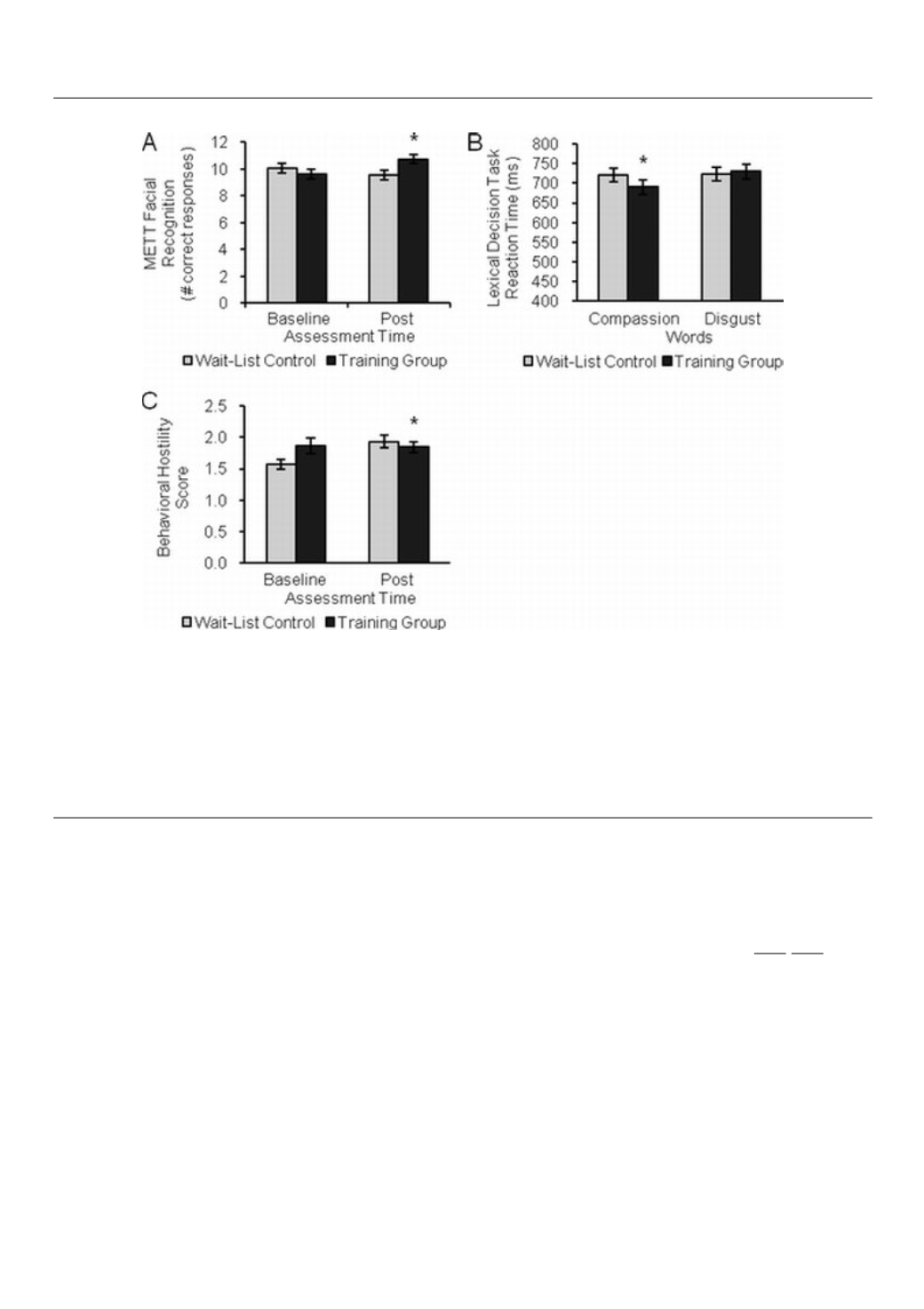
at 5-month follow-up, r(30) = -.36, p < .05. From Kemeny ME, Foltz C, Cavanagh JF, et al. Contemplative/emotion
training reduces negative emotional behavior and promotes prosocial responses.
Emotion
. 2012; 12(2), 338–350.
Figure 3.
Comparison (mean +/- SE) of the training and wait-list control groups on assessments of (A) Micro-Expression Training
Tool at baseline and post (METT; Ekman, 2004), Mixed Linear Models (MLM), p = .009; (B) Lexical Decision Task at
the follow-up assessment point (MLM, p < .05; reaction time was computed for correct responses in each word type
[compassion, disgust, neutral, non-word] appearing after each prime type [images eliciting compassion, compassion
and disgust, neutral]); and (C) behavioral hostility demonstrated during the marital interaction task at baseline and post
assessments using SPAFF coding (MLM, p < .05). Note that this baseline difference is not significant. From Kemeny
ME, Foltz C, Cavanagh JF, et al. (2012). Contemplative/emotion training reduces negative emotional behavior and
promotes prosocial responses.
Emotion
,
12
(2), 338–350.
Importantly, the intervention appeared to influence not only self-reported behaviors but actual
behaviors in a direction consistent with greater awareness of suffering and motivation to reduce
suffering, for example, as observed during a marital conflict task and in subliminal responses to
images of suffering. There is an emerging literature suggesting that such meditation-based
interventions can have beneficial effects on processes related to prosocial responses
,
,
indicating that mindfulness and other meditation techniques may support the cognitive and
affective processes that promote the compassion drive. Overall, there is growing evidence that
emotional balance may be a key mechanism by which mindfulness may promote compassion and
related prosocial responses.
337


